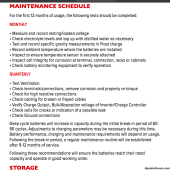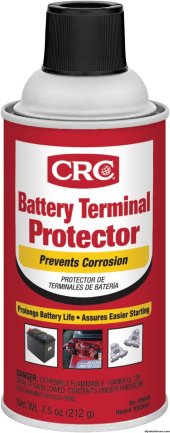wopachop
New Member
Just cleaned my terminals again. They grow the blew corrosion. Do those fiber washers work on 6v flooded deep cycle batteries? Mine on are the trailer tounge and dont have any covers. Sometimes i have a piece of foam over them. Ive read the trapped gases are a problem. But my batteries are exposed in a non humid climate.
Should i make the connections and coat with dielectric grease? Ive read vaseline can be used. I could borrow a can of that red spray. When you need to work on the cables, do you just deal with using IPA to wipe it clean? Its not so bad using baking soda paste and a hose. Then a wire wheel on a drill. I like the idea of a fiber washer if they work. No grease to clean up.
I cant remember the cause. Ive read it before. I happens on my main positive lead, then both sides of the series connecting cable, but the ground cable is clean. I meant to rotate the batteries in their positions. I scribed a 1 and 2 on the tops and been monitoring SG. It was fun at first but now a pain. Does the 1st battery with the positive cable take more of a hit? Both its connectors have corrosion. While the other battery only the positive side of the battery had corrosion.
Should i make the connections and coat with dielectric grease? Ive read vaseline can be used. I could borrow a can of that red spray. When you need to work on the cables, do you just deal with using IPA to wipe it clean? Its not so bad using baking soda paste and a hose. Then a wire wheel on a drill. I like the idea of a fiber washer if they work. No grease to clean up.
I cant remember the cause. Ive read it before. I happens on my main positive lead, then both sides of the series connecting cable, but the ground cable is clean. I meant to rotate the batteries in their positions. I scribed a 1 and 2 on the tops and been monitoring SG. It was fun at first but now a pain. Does the 1st battery with the positive cable take more of a hit? Both its connectors have corrosion. While the other battery only the positive side of the battery had corrosion.






